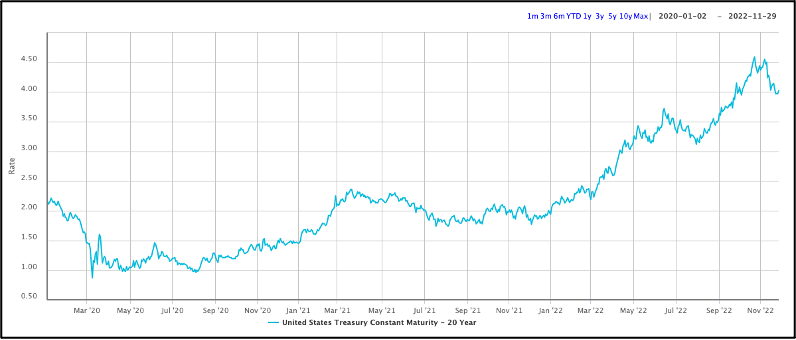There is no doubt that inflation is top of mind for most businesses. Any argument around whether it is transitory has been settled. However, for most business owners, one question looms:
“How is inflation and this current economic environment impacting the value and potential sale of my business?”

How did we get here?
As you’ve likely observed, there are many theories and arguments. Here is what we know:
A rapid money supply increase: The U.S. economy experienced a money supply increased rapidly during the coronavirus pandemic as the government borrowed and spent large sums of money.
Additional contributing factors including supply chain disruptions created by lockdowns and spiking demand, labor market pressures created by finding and retaining workers as well as the further impact on the uncertain global supply chain set off by Russia’s invasion of Ukraine.
As a result, inflation has taken hold.
How does this impact the value of a business?
In most cases, sustained inflation is not good for companies. Higher costs generally outpace revenue growth and lead to lower profits, which points us back to the most significant input when it comes to determining business value:
- Profits drive cash flow, cash flow drives value.
Business buyers are essentially purchasing a company’s future cash flows. While your business history is important, a buyer’s ability to assess where a business is going is even more important. - Profitability – both total dollars and margin. Consider how your bottom line is growing. Are you making more money, but sacrificing margin? Higher margin businesses, especially those holding margins in today’s higher cost environment, are likely to command higher values.
- Growth in context – What does the overall growth of revenue and profit look like this year and in the coming years? A year of 5% growth just a few years ago may have been considered a great year. How does that same 5% stack up versus the rest of the industry when you factor in current inflation? Higher growth businesses are likely to command higher values.
- Discount rates on the rise – In recent months, we have seen significant upward moves in interest rates, leading to a rise in “discount rates”. A discount rate is the rate of return used to value future cash flows and assets. To put it simply, when we experience higher interest rates and discount rates, it leads to lower values for businesses.

How does this impact the ability to sell your business?
Traditional M&A Market
In general, the traditional M&A market is slowing from the record years of 2020, 2021 and early 2022. Much of this is a function of the continued increases in interest rates. Most buyers use a significant amount of debt to finance the purchase of a business, so as rates go up, the attractiveness of using debt to finance this purchase goes down along with the buyer’s return simultaneously going down. This dynamic can lead to low appetite for a transaction or transactions with a lower purchase price.
Employee Stock Ownership Plan Transactions
In the ESOP world, this dynamic is somewhat mitigated. The drivers of value we discussed above are still very relevant, but there is good news. The ability to close a transaction in a higher interest rate environment continues to be available.
ESOP transactions are typically heavily seller-financed with “patient capital”, otherwise known as long term capital. This allows a seller to capture the value for an otherwise healthy business without the need to over-lever the company at closing with expensive debt impacting a third-party buyer’s return.
Additionally, increased interest expense costs are partially mitigated by the tax-advantaged or tax-free nature of the company as an ESOP. Since ESOPs operate largely tax-free, there is more cushion in the cash flow of this business to absorb an increase in interest expense since taxes are less of a burden. This fact coupled with lower required payments to service debt obligations in a seller financed transaction bolsters a business so that they can weather what we all hope to be a peak interest rate environment in the near-term.
ESOP transactions are still occurring with a win-win-win situation for owners, their business, and the company’s employees.
Let’s Discuss
As always, our team is available to help illuminate how these insights might benefit your ownership transition efforts. If you or one of your clients are interested in pursuing this opportunity, please contact us to schedule a discussion as soon as possible.


